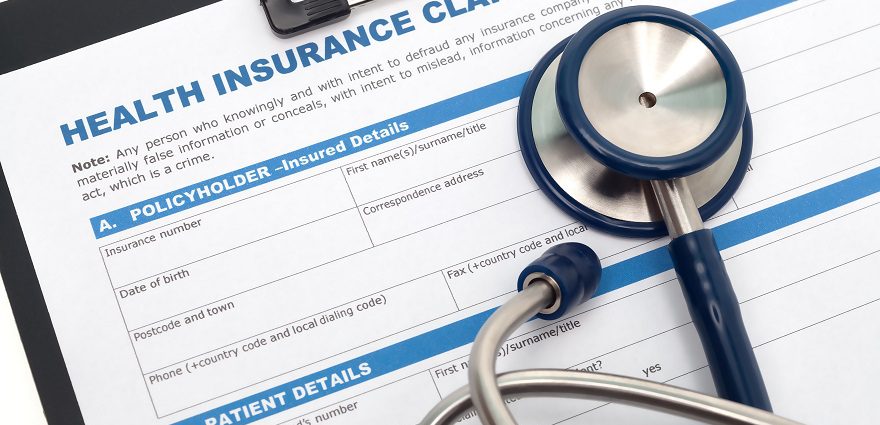Insurance Coverage for Gastric Bypass Surgery

Gastric bypass surgery can cost anything from $18,000 to $22,000. The good news is that many insurance companies — both public and private — now offer coverage for this procedure.
Insurance coverage varies by state, employer and insurance provider. Some insurers foot the entire bill, while others will pay 80 percent of the charges that are considered “customary and usual” for gastric bypass.
“Usual” refers to the normal rate charged for gastric bypass, and “customary” refers to the rates charged by providers in your area. These rates are arbitrary and determined by the insurer or provider. Some insurance companies or employers may also require a co-payment for surgery. It is important to determine if complications are covered as well.
Most insurers will pay for all or some of the costs associated with anesthesia, the hospital facility and the surgeon’s fee. They may also pay for certain post-surgery costs, including diet and fitness plans, support groups and nutritional supplements. Insurers generally do not cover the cost of facial plastic surgery or body contouring surgeries after massive weight loss, such as face lift, breast lift, panniculectomy or liposuction. It is always best to check with your insurer regarding coverage before planning any surgery.
Visit our sister site Consumer Guide to Plastic Surgery to learn more about plastic surgery procedures.
Does Medicare Cover Gastric Bypass?
Medicare, the U.S. government health plan for people 65 or older, will cover gastric bypass surgery for individuals with a body mass index (BMI) of 35 and at least one obesity-related health problem such as Type 2 diabetes, heart disease or sleep apnea. In addition, gastric bypass candidates must have completed a six-month medically supervised weight loss program through their bariatric surgeon or their primary care physician.
For Medicare to cover the cost of the surgery, it must take place at a specific facility, as designated by the American Society for Metabolic and Bariatric Surgery, or at a certified Level 1 Bariatric Surgery Center, as designated by the American College of Surgeons.
Both designations indicate that the centers and the surgeons practicing there have performed a specified number of bariatric surgeries. These centers must also have a bariatric team including surgeons, nurses, medical consultants, nutritionists, psychologists and exercise physiologists on hand. Such standards and safeguards are designed to protect the health of bariatric surgery patients.
These programs are regularly visited by experts to make sure they are still adhering to these standards, in which case they receive re-certification. Every program must report all of their outcomes, including complications, to a national database. This information will help surgeons better understand the risks and benefits of bariatric surgery, and can be evaluated by insurers who are considering covering bariatric surgery.
There is no pre-certification or pre-authorization needed for Medicare coverage of gastric bypass, but Medicare does not decide on eligibility until after you have had the surgery. Avoid this troubling scenario by contacting your local Medicare provider to know what is expected from you before you schedule your gastric bypass surgery.
Medicaid and Gastric Bypass Surgery
Medicaid is the federal government’s health care plan for low-income individuals and families. Medicaid’s coverage of gastric bypass surgery is decided on a state-by-state basis. Contact your state’s Medicaid office to see what policies are in place regarding coverage for surgery.
Private Insurance
Different companies have different requirements for gastric bypass coverage. In general, the surgery is a covered benefit for individuals with a BMI of 40 or higher, or a BMI of 35 and higher with the presence of obesity-related illnesses.
If you work for a company with more than 1,000 employees, your employer can make benefit decisions. Gastric bypass is usually not covered for individuals who work for small companies with less than 100 employees. To find out for sure, check with your insurance company or human resources department.
Most private insurance companies have some requirements for bariatric surgery benefits. The approval process is more complicated than it is for other surgery procedures. Insurers will require a letter of medical necessity from your primary care physician as well as documentation of your obesity-related medical problems. In addition, the bariatric program will submit a request for authorization to your insurance company. Your gastric bypass surgery will not be scheduled until you receive this authorization.
Recent healthcare reform states that insurers can no longer put a limit on lifetime spending. In the past, insurers could place a “cap” on benefits, which would render a person virtually uninsured. There is no substitute for going over your covered benefits carefully to avoid any surprises. Most bariatric programs will review all of these issues with you in advance of your consultation appointment.
If your insurer turns you down, an appeal is always an option. Familiarize yourself with your plan’s appeals policy in advance.
You may choose to pay out of pocket for gastric bypass surgery. Some centers have “reinsurance” plans that you can buy into for coverage of any complications that may occur during the first year after surgery. You can also talk to the bariatric program about financing options, but these options do not include coverage for complications and may not be advisable.


